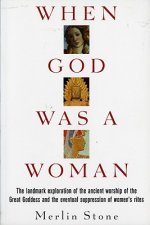
Kód: 05032032
First Jihad
Autor Daniel Allen Butler
Before there was Osama bin Laden, Abu al-Zarqawi or Ayatollah Khomeini, there was the Mahdi-the "Expected One"-who raised the Arabs in pan-tribal revolt against infidels and apostates in the late 19th-century Sudan.Born on the Nil ... celý popis
- Jazyk:
 Angličtina
Angličtina - Vazba: Pevná
- Počet stran: 256
Nakladatelství: Casemate Publishers, 2007
- Více informací o knize

765 Kč
Dostupnost:
50 % šance Máme informaci, že by titul mohl být dostupný. Na základě vaší objednávky se ho pokusíme do 6 týdnů zajistit.
Máme informaci, že by titul mohl být dostupný. Na základě vaší objednávky se ho pokusíme do 6 týdnů zajistit.Prohledáme celý svět
Mohlo by se vám také líbit
Dárkový poukaz: Radost zaručena
- Darujte poukaz v libovolné hodnotě a my se postaráme o zbytek.
- Poukaz se vztahuje na celou naši nabídku.
- Elektronický poukaz vytisknete z e-mailu a můžete ihned darovat.
- Platnost poukazu je 12 měsíců od data vystavení.
Informovat o naskladnění knihy
Zadejte do formuláře e-mailovou adresu a jakmile knihu naskladníme, zašleme vám o tom zprávu. Pohlídáme vše za vás.
Více informací o knize First Jihad
Nákupem získáte 77 bodů
 Anotace knihy
Anotace knihy
Before there was Osama bin Laden, Abu al-Zarqawi or Ayatollah Khomeini, there was the Mahdi-the "Expected One"-who raised the Arabs in pan-tribal revolt against infidels and apostates in the late 19th-century Sudan.Born on the Nile in 1844, Muhammed Ahmed grew into a devout, charismatic young man, whose visage was said to have always featured the placid hint of a smile. He developed a ferocious resentment, however, against the corrupt Ottoman Turks, their Egyptian lackeys, and finally the Europeans who he felt held the Arab people in subjugation. In 1880, he raised the banner of holy war, and thousands of warriors flocked to his side.The Egyptians dispatched a punitive expedition to the Sudan, but the Mahdist forces destroyed it. In 1883, Col. William Hicks gathered a larger army of nearly 10,000 men. Trapped by the tribesmen in a defile at El Obeid, it was massacred to a man. Three months later, another British-led force met disaster at El Teb.Prime Minister William Gladstone ordered a withdrawal from Sudan, and dispatched one of Victoria's most celebrated heroes, General Charles "Chinese" Gordon, to effect the evacuation. Instead, Gordon was besieged by the Mahdi at Khartoum. In an epic contest pitting military innovation and discipline against religious fervor, the Mahdi and Gordon dueled throughout 1884, while the British government hesitated to send relief. On January 26, 1885 a treacherous native (or patriot, depending on one's point of view) let the Mahdist forces into the city of Khartoum. Gordon, realizing that the end was at hand, donned a white uniform, took up his sword, and walked out upon his palace steps. He was hacked to death by jihadists and his head wascarried around the city on a pole. A British relief column arrived two days later.The Mahdi died shortly afterward, yet his revolt had succeeded. The British vacated the territory for almost 15 years until in 1899, led by Herbert Kitchner, they returned to forestall encroachments by other European powers. The Mahdist forces were crushed at the Battle of Omdurman, and the great jihad temporarily dissolved into the desert, not to be renewed for another century.In today's world the Mahdi's words have been repeated almost verbatim by the Muslim jihadists who have attacked New York, Washington, Madrid and London, and continue to wage war from the Hindu Kush to the Mediterranean. Along with Saladin, who once defeated a holy war, the Mahdi stands as an Islamic icon who once launched his own successful crusade against the West. This deeply researched work reminds us that the "clash of civilizations" that supposedly came upon us in September 2001 in fact began much earlier. This book is essential reading for all those who seek to understand the roots of our current relationship with Islam. REVIEWS .,." For those looking to find the origins of the extreme terrorism now gripping the planet, this book is the ideal starting point. Butler (Age of Cunard) has extensively researched the struggle for empire in the late 19th-century Middle East among Egypt, Great Britain, and Muhammed Ahmed, the Mahdi-or "Expected One"-of what was then the Sudan. T Although Butler states that his initial purpose was not to draw that parallel, the facts are there for all to see. Highly recommended."Library Journal, 03/2007.,."key to understanding not only the Mahdi, but his ongoing importance toevents happening today."California Bookwatch, 7/2007.,."lays important tracks into the study of terrorism, fundamentalism and the early clashbetween Islam and Christianity..."Publishers Weekly 1/2007.,."not a repeat of folk-lore history as depicted in many books and on the silver screen, but the result of most thorough and painstaking new research of memoirs, letters, government papers and many other primary sources... a very fine book and I recommend it most highly to you all" Military Modeling International, 03/2008
 Parametry knihy
Parametry knihy
Zařazení knihy Knihy v angličtině Society & social sciences Society & culture: general Social groups
765 Kč
- Plný název: First Jihad
- Autor: Daniel Allen Butler
- Jazyk:
 Angličtina
Angličtina - Vazba: Pevná
- Počet stran: 256
- EAN: 9781932033540
- ISBN: 1932033548
- ID: 05032032
- Nakladatelství: Casemate Publishers
- Hmotnost: 502 g
- Rozměry: 229 × 159 × 26 mm
- Datum vydání: 01. June 2007
Oblíbené z jiného soudku
-

Women Who Run with the Wolves
268 Kč -

Freedom Writers Diary
389 Kč -

Think Like a Monk
283 Kč -

Orientalism
323 Kč -

How Europe Underdeveloped Africa
514 Kč -

Desert Flower
302 Kč -

Why Does He Do That?
433 Kč -

Letters to a Young Muslim
302 Kč -

Eros and Mysteries of Love
423 Kč -

Puer Tea
947 Kč -

Life After Darkness
566 Kč -

Womanhood
543 Kč -

JFK - 9/11
738 Kč -

Complete Book of Pilates for Men
463 Kč -

Colloquial Yiddish
1682 Kč -

Gypsy Identities 1500-2000
1666 Kč -

Sword of No-sword
692 Kč -

Servitors of Empire
498 Kč -

Gerotranscendence
3524 Kč -

Northwest Coast Indian Art
732 Kč -

Qur'an
810 Kč -

When God Was A Woman
493 Kč -

The Mastery of Love
309 Kč -

Vintage Menswear
456 Kč -

Who Cooked the Last Supper?
427 Kč -

Women Who Run With The Wolves
433 Kč -

The Way of Men
342 Kč -

The Autobiography of Malcolm X
227 Kč -

Second Sex
284 Kč -

Goddesses in Everywoman
302 Kč -

Talking with Female Serial Killers - A chilling study of the most evil women in the world
276 Kč -

Intellectuals and Society
558 Kč -

Women in the Qur'an
480 Kč -

Erotic Bondage Book
364 Kč -

Zami
276 Kč -

Nine Years among the Indians, 1870-1879
615 Kč -

Dark Emu
356 Kč -

Childhood and Society
400 Kč -

Happy City
302 Kč -

The Male Nude
505 Kč -

The Bell Curve
463 Kč -

We Should All Be Feminists
196 Kč -

Empire of the Summer Moon
356 Kč -

Radium Girls
276 Kč -

Dance of Anger
276 Kč -

Beauty Myth
356 Kč -

Muqaddimah
540 Kč -

TROUBLEMAKER
381 Kč -

Ladies' Book of Etiquette and Manual of Politeness
382 Kč
Osobní odběr Praha, Brno a 12903 dalších
Copyright ©2008-24 nejlevnejsi-knihy.cz Všechna práva vyhrazenaSoukromíCookies



 Vrácení do měsíce
Vrácení do měsíce 571 999 099 (8-15.30h)
571 999 099 (8-15.30h)